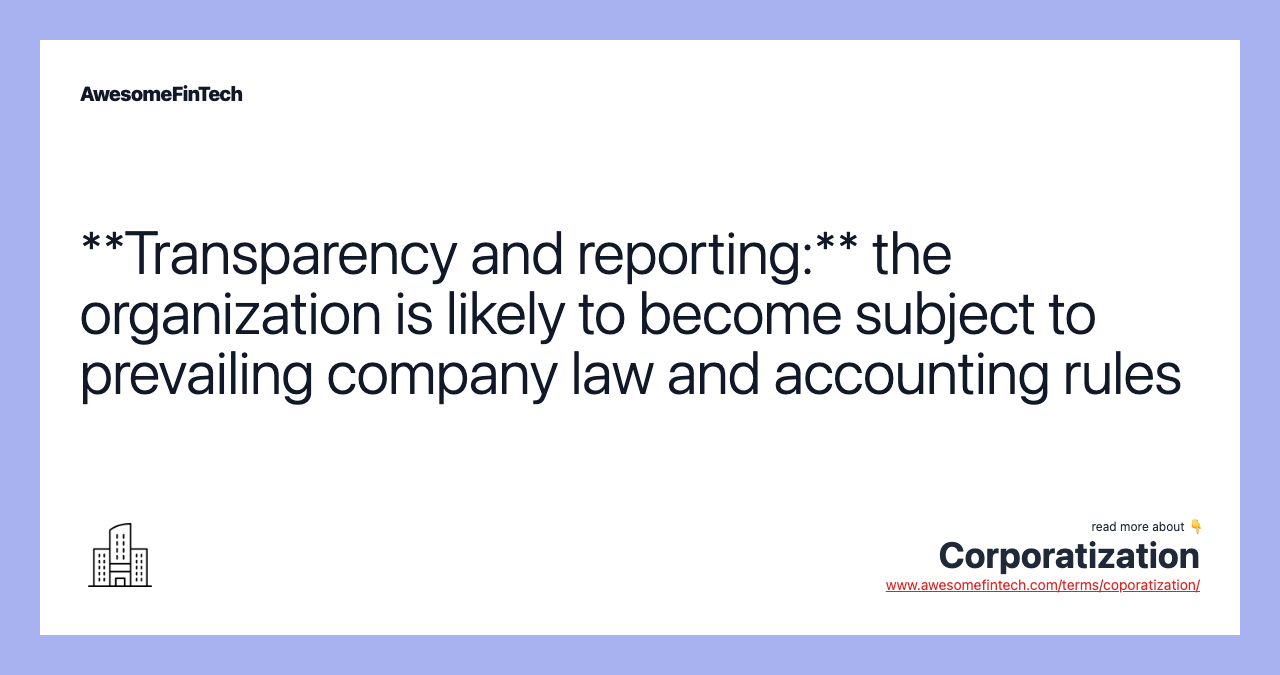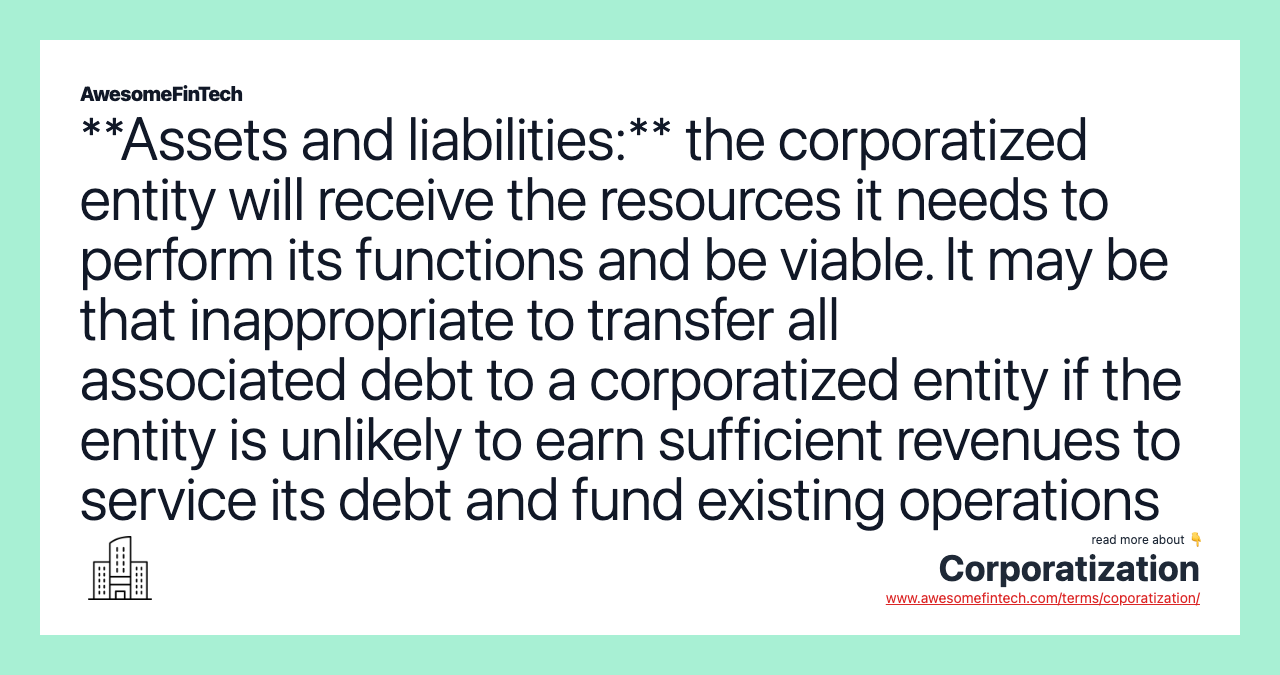Corporatization
Corporatization refers to the restructuring or transformation of a state-owned asset or organization into a corporation. Corporatization occurs when a government attempts to reorganize the structure of a government-owned entity into one that resembles a private entity. The main goal of corporatization is to allow the government to retain ownership of the company while allowing the company to run as efficiently as its private counterparts. The goal of corporatization is to create arm's-length enterprises with independent managers who are expected to account for costs and revenues as though they were operating a stand-alone company. Governments around the world show a trend of taking back control of services contracted out to the private sector, and this trend in corporatization has become a popular form of modern government enterprise ownership.

What Is Corporatization?
Corporatization refers to the restructuring or transformation of a state-owned asset or organization into a corporation. These organizations typically have a board of directors, management, and shareholders. However, unlike publicly traded companies, the government is the company's only shareholder, and the shares in the company are not publicly traded.
The aim of corporatization is to create enterprises with independent managers who are expected to account for the business as though they were operating a stand-alone company.








Understanding Corporatization
The main goal of corporatization is to allow the government to retain ownership of the company while allowing the company to run as efficiently as its private counterparts. Government departments are often inefficient due to internal bureaucratic conventions. Additionally, the government may consider that joining the private sector might improve a company's performance. If this is the case, the government might conduct an offering on the stock market to divest the organization.
Key Features of Corporatized Entities
Special Considerations for Corporatization
Governments around the world show a trend of taking back control of services contracted out to the private sector, and this trend in corporatization has become a popular form of modern government enterprise ownership. Corporatized agencies are fully owned and operated by the state but have separate legal and financial status. Water and electricity utilities are common examples of this type of corporatization, but the practice extends to a much wider range of goods and services, from airports to universities and hospitals.
The goal of corporatization is to create arm's-length enterprises with independent managers who are expected to account for costs and revenues as though they were operating a stand-alone company. Corporatization is intended to create greater financial transparency, reduce political interference, and strengthen managerial accountability.
Fast Fact
Corporatization has been shown to improve performance in state-owned entities. However, why this is the case is not easy to determine empirically.
Corporatization Intent
Corporatization, or the adoption of more business-like practices by government agencies, has been shown to lead to improvements in performance. However, why this is the case is not well understood. There are competing theories as to how corporatization may improve performance. However, confounding factors make it difficult for empirical studies to identify causal relationships.
Related terms:
Accounting
Accounting is the process of recording, summarizing, analyzing, and reporting financial transactions of a business to oversight agencies, regulators, and the IRS. read more
Bureaucracy
A bureaucracy is an administrative, government, or social system with a hierarchical structure and complex rules and regulations. read more
Business
A business is an individual or group engaged in financial transactions. Read about types of businesses, how to start a business, and how to get a business loan. read more
Company
A company is a legal entity formed by a group of people to engage in business. Learn how to start a company and which is the richest company in the world. read more
Corporation
A corporation is a legal entity that is separate and distinct from its owners and has many of the same rights and responsibilities as individuals. read more
Divestiture
A divestiture is the disposal of a business unit through sale, exchange, closure, or bankruptcy. read more
Market-Based Corporate Governance System
A market-based corporate governance system defines the responsibilities of the different participants in the company, including shareholders and management. read more
Private Sector
The private sector is the part of the economy that is not state controlled and is run by individuals and companies for profit. read more
Privately Owned
Privately owned refers to businesses that have not offered shares to be traded on a public exchange. read more